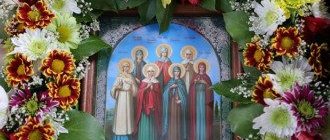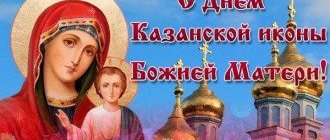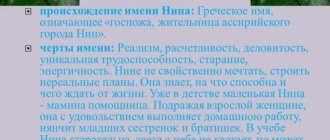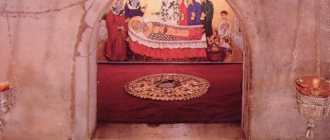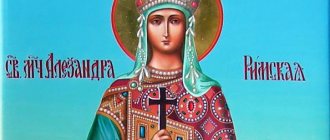Life
Lives of the martyr Theodotus of Ancyra and the seven martyrs: Tekusa, Faina, Claudia, Matrona, Julia, Alexandra and Euphrasia
The holy martyr Theodotus and the holy seven virgin martyrs - Tecusa, Faina, Claudia, Matrona, Julia, Alexandra and Euphrasia - lived in the 2nd half of the 3rd century in the city of Ancyra, Galatian region, and died as martyrs for Christ at the beginning of the 4th century.
Saint Theodotus was an “innkeeper”, had his own hotel, and was married. Even then, he achieved high spiritual perfection: he maintained purity and chastity, cultivated abstinence in himself, subjugated the flesh to the spirit, practicing fasting and prayer. With his conversations, he led Jews and pagans to the Christian faith, and sinners to repentance and correction. Saint Theodotus received the gift of healing from the Lord and healed the sick by laying hands on them. During the persecution of Christians by Emperor Diocletian (284–305), the ruler Theoteknos, known for his cruelty, was appointed to the city of Ancyra. Many Christians fled the city, leaving their homes and property behind. Theotekn informed all Christians that they were obliged to make sacrifices to idols, and if they refused, they would be handed over to torture and death. The pagans brought Christians to be tortured, and their property was stolen.
There was famine in the country. During these harsh days, Saint Theodotus, in his hotel, gave shelter to Christians who were left homeless, fed them, hid those subject to persecution, and from his reserves gave the devastated churches everything necessary for the celebration of the Divine Liturgy. He fearlessly entered prisons, providing assistance to the innocently convicted, urging them to be completely faithful to Christ the Savior. Theodotus was not afraid to bury the remains of the holy martyrs, secretly carrying them away or ransoming them for money from soldiers. When Christian churches in Ancyra were destroyed and closed, the Divine Liturgy began to be celebrated in his hotel. Realizing that he, too, was facing a martyrdom, Saint Theodotus, in a conversation with the priest Fronton, predicted that the martyr’s relics would soon be delivered to him at the place chosen by both of them. In confirmation of these words, Saint Theodotus gave his ring to the priest.
At that time, seven holy virgins accepted death for Christ, of whom the eldest, Saint Tecusa, was the aunt of Saint Theodotus. The holy virgins - Tekusa, Faina, Claudia, Matrona, Julia, Alexandra and Euphrasia from a young age devoted themselves to God, lived in constant prayer, fasting, abstinence, good deeds, and all reached old age. Brought to trial as Christians, the holy virgins courageously confessed their faith in Christ before Theoteknos and were subjected to torture, but remained unshakable. Then the ruler handed them over to shameless youths to be desecrated. The holy virgins prayed fervently, asking God for help. Saint Tekusa fell at the feet of the young men, removing her head veil and showing them her gray head. The young men came to their senses, began to cry themselves and left. Then the ruler ordered that the saints take part in the celebration of the “washing of the idols,” as the pagan priestesses did, but the holy virgins again refused. For this they were sentenced to death. A heavy stone was tied around each neck, and all seven holy virgins were drowned in the lake. The next night, Saint Tecusa appeared in a dream to Saint Theodotus, asking him to take out their bodies and bury them in a Christian manner. Saint Theodotus, taking with him his friend Polychronius and other Christians, headed to the lake. It was dark, and a burning lamp showed the way. Meanwhile, the holy martyr Sosander appeared before the guards stationed by the pagans on the shore of the lake. The frightened guards fled. The wind pushed the water to the other side of the lake. Christians approached the bodies of the holy martyrs and took them to the church, where they were buried. Having learned about the theft of the bodies of the holy martyrs, the ruler became furious and ordered that all Christians be seized indiscriminately and given over to torture. Polychronius was also captured. Unable to withstand the torture, he pointed to Saint Theodotus as the culprit of the theft of bodies. Saint Theodotus began to prepare for death for Christ; Having offered up fervent prayers together with all the Christians, he bequeathed to give his body to the priest Fronto, to whom he had previously given his ring. The saint appeared in court. They showed him various instruments of torment and at the same time promised him great honors and wealth if he renounced Christ. Saint Theodotus glorified the Lord Jesus Christ and confessed his faith in Him. In rage, the pagans betrayed the saint to prolonged torture, but the power of God supported the holy martyr. He remained alive and was taken to prison. The next morning, the ruler again ordered the saint to be tortured, but soon realized that it was impossible to shake his courage. Then he ordered the martyr’s head to be cut off. The execution took place, but a storm arose and prevented the soldiers from burning the body of the martyr. The soldiers, sitting in the tent, remained to guard the body. At this time, the priest Fronto was passing along a nearby road, leading a donkey with a load of wine from his vineyard. Near the place where the body of Saint Theodotus lay, the donkey suddenly fell. The soldiers helped raise him and told Fronton that they were guarding the body of the executed Christian Theodotus. The priest realized that the Lord had providentially brought him here. He placed the holy remains on a donkey and brought them to the place indicated by Saint Theodotus for his burial, and honorably buried them. Subsequently, he erected a church on this site. Saint Theodotus accepted death for Christ on June 7, 303 or 304, and his memory is remembered on May 18, the day of the death of the holy virgins.
A description of the life and martyrdom of Saint Theodotus and the suffering of the holy virgins was compiled by a contemporary and associate of Saint Theodotus and an eyewitness of his death - Nile, who was in the city of Ancyra during the period of persecution of Christians by Emperor Diocletian.
What names and why were avoided in the Romanov dynasty?
Comparing the names of the new dynasty with the names of the Rurik dynasty, it is striking that the Romanovs avoided some names that were previously common and even popular in the families of Russian monarchs.
Changes in preferences occurred over time: it seems that some names associated with the first Romanovs began to be considered “unlucky”. At the end of the 19th - beginning of the 20th centuries.
a reverse turn occurs: children of royal blood are again occasionally given names that were previously rejected.
Rare and “forbidden” male names
Among the first Romanovs there were names that were not used to refer to the reigning Rurikovichs - Mikhail, Alexei, Peter. But some served as a direct reference to the times of the previous dynasty - Fedor, Ivan. It is noticeable that the use of some names ceases already in connection with the unfortunate events of the 17th century.
The first son of Tsar Alexei Mikhailovich, named Dmitry, died in infancy. Since the last son of Ivan the Terrible, who died in Uglich, had the same name, the name Dmitry was apparently finally considered unlucky. Only in 1860 was this name given to the grandson of Nicholas I, the third son of Grand Duke Konstantin Nikolaevich.
Since then, several more great princes have been named Dmitry, but never children in the families of reigning monarchs.
The name Ilya, unusual for the Rurikovichs, was given to the son of Tsar Fyodor Alekseevich, but he also died in infancy, and since then the Romanovs have never called anyone Ilya.
After the death of Fyodor Alekseevich, who left no heirs, this name was also deleted from the Romanov name book. Fedor appears there once only at the very end of the 19th century. This is despite the fact that many Western European princesses, marrying the Romanovs and converting to Orthodoxy, became “Fedorovnas.”
The name Ivan obviously began to be considered unlucky after the tragic fate of Ivan VI Antonovich, who was imprisoned as an infant and later killed. Peter - after the assassination of Peter III. Pavel - after the assassination of Paul I.
Alexei among the Romanovs, after the death in the dungeon of the son of Peter I, appears again only in the middle of the 19th century.
The name Boris, apparently, was generally considered cursed because of Boris Godunov already among the first Romanovs. Only in 1877 did Grand Duke Vladimir Alexandrovich, the younger brother of Alexander III, call his third son this way.
The baptism of this Grand Duke in memory of St. Vladimir also became a precedent in the house of the Romanovs. Grand Duke Vladimir Alexandrovich was the third son of the heir to the throne Alexander Nikolaevich, the future Emperor Alexander II.
He was born in 1847. In his family, Vladimir Alexandrovich himself became an innovator in naming children.
He gave another of his sons (there were four of them in total) a name that for some reason had not previously been claimed by either the Rurikovichs or the Romanovs - Kirill.
Some great princes in the second half of the 19th century also became innovators or revived some names characteristic of the Romanovs in the old days, disdaining superstitions. Grand Duke Nikolai Nikolaevich (senior), the third son of Nicholas I, named his second son Peter in 1864. True, no one else in the dynasty followed his example. Pyotr Nikolaevich named one of his sons Roman - also a unique case in the Romanov house. Even earlier, in 1860, Alexander II himself named his sixth son Paul, but this case turned out to be an isolated one in the royal family after the death of Paul I.
The two Grand Dukes especially distinguished themselves in this regard. Konstantin Konstantinovich, famous poet K.R.
, grandson of Nicholas I, named four of his six sons: John (that is, Ivan, but in exactly this “royal” form), Gabriel (never found among Russian monarchs), Oleg and Igor (were popular among Old Russian princes).
These examples turned out to be isolated and mostly unfortunate: Oleg died in the first weeks of the World War of 1914, and John and Igor were killed by the Bolsheviks in Alapaevsk in 1918.
Another grandson of Nicholas I, Alexander Mikhailovich, a famous historian, gave four of his six sons names also unique to the Romanovs after the 17th century: Fedor, Nikita (Fedor Nikitich was the name of the founder of the dynasty, the father of Tsar Mikhail Romanov), Rostislav and Vasily. The throne name of some Rurikovichs, Vasily (this, among other things, was the baptismal name of Vladimir the Saint) was for some reason also “taboo” among the Romanovs - perhaps because of Tsar Vasily Shuisky.
It is difficult to explain why the Romanov dynasty did not use names at all, which were not uncommon among the Rurikovichs and the old nobility, including those that were in use among the Romanovs themselves until the 17th century: Simeon, Zacharias, Yuri (in exactly this form, unlike George , which, however, also was not popular until the end of the 19th century). They probably missed it somehow.
Such common Russian names as Sergei, Andrei, and the Romanovs were not avoided, but they were rarely used. Other names familiar to us - Anton, Valentin, Victor, Denis (Dionysius), etc. - are not found among the Romanovs. Their absence can only be explained by the lack of early precedents.


